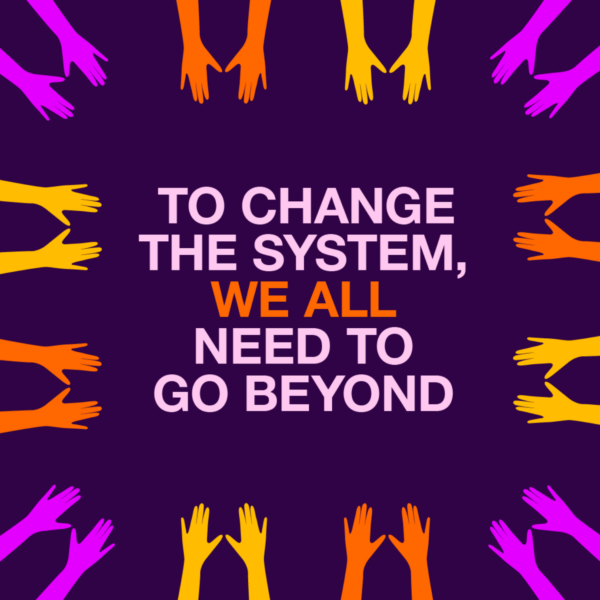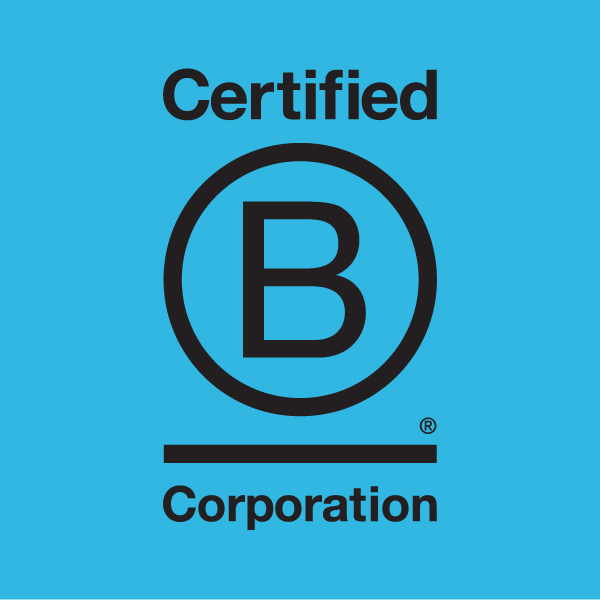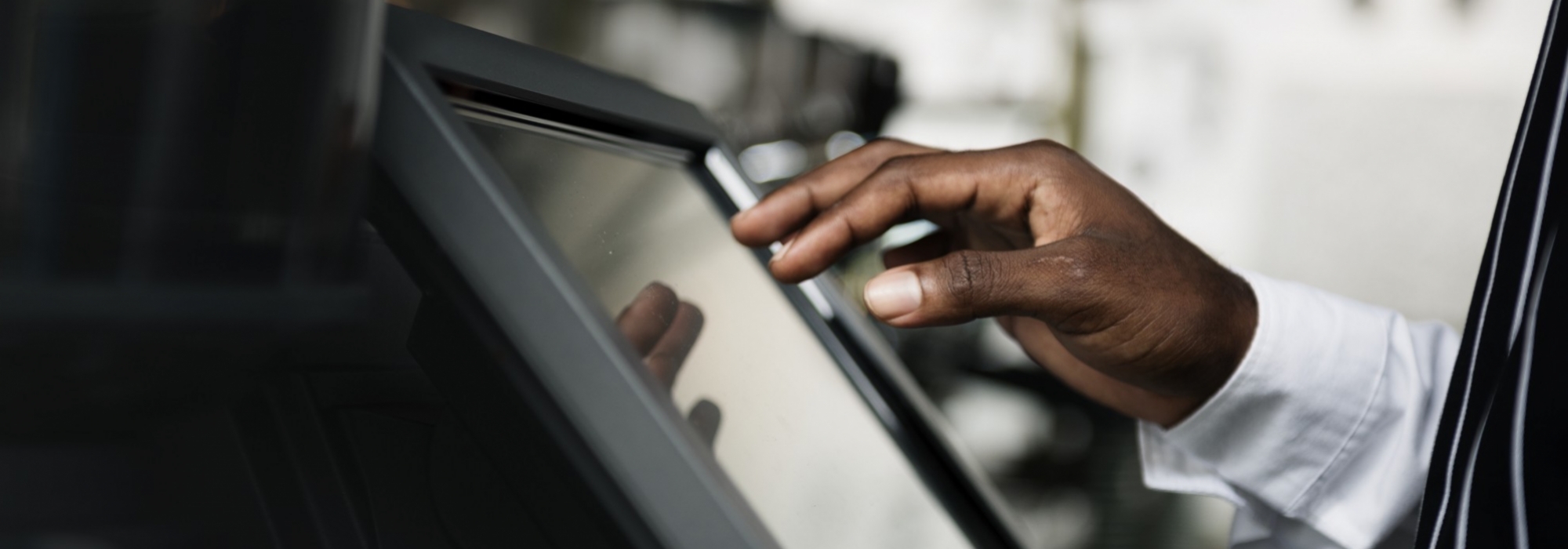The Four-Day Workweek and Humanity at Work
July 11, 2023
This article features personal perspectives from employees at B Lab U.S. & Canada. In this series, we invite B Lab employees to share their experiences, inspiration, hopes, and challenges as they work toward a more inclusive and regenerative world. This edition of B Lab Voices is from Devin Nelson, with contributions from colleagues Denise Jones, Menucha Frischling, and Marielle Martin.
In what Jorge Fontanez of B Lab U.S. & Canada described as “an unexpected moment of pure joy,” the team recently approved a proposal to trial a four-day workweek. Using the 100-80-100 model, B Lab U.S. & Canada employees will receive 100% of their salary while working 80% of their usual hours, all while maintaining 100% of their regular output.
If you look at the history of the 40-hour workweek, it’s fairly arbitrary. The four-day workweek challenges us to get rid of unnecessary “filler” work and focus on the tasks necessary for the role — maintaining our workflow while getting rid of the fluff. Meanwhile, it also helps provide better balance so employees can come to work feeling more refreshed and less burnt out, and places trust in employees to get done what they need to in any given week.
The decision to trial a four-day workweek at B Lab U.S. & Canada is rooted in overwhelming evidence demonstrating its benefits for employers, employees, and the overall company. A recent pilot conducted by 4 Day Week Global, in which nearly 3,000 employees participated, revealed that 92% of companies in the pilot have chosen to adopt the four-day week permanently.
The proposal was brought forward by me, Menucha Frischling, Marielle Martin, and Denise Jones and was unanimously approved during an all-team staff retreat earlier this year. While the evidence used in the proposal was anchored in data and trials, bringing the four-day workweek to B Lab U.S. & Canada was actually quite personal for the four of us.

The Future of Work is Now
The community of Certified B Corporations knows that profits don’t have to come at the expense of other stakeholders. Learn more in this report.
Behind the Proposal: Making Space to Navigate Life’s Complexities
In a 2021 survey, “84% of employees report that they rarely mean it every time they say they’re ‘fine’ or ‘good.’” Over the past few years, I couldn’t believe some of the things we were dealing with in our personal lives and then still showing up to work five days a week (or more) like nothing was wrong. So many of us were shoving our humanness into a measly two days: cleaning, errands, parenthood, grief, trauma, caretaking, self-care, rest … the list goes on.
Martin started her career at B Lab U.S. & Canada in 2019, working on the annual Champions Retreat gathering, and putting together this event is no light lift. She came to B Lab under stressful circumstances, making the challenging choice to move to Philadelphia and accept the job after two years of caretaking for her mother, who has multiple sclerosis, and her grandma — a source of support in her life.
“I was in the middle of working on Tuesday, July 30, 2019, when I received back-to-back calls that jolted me out of my trance of conference planning,” Martin recalls. She quickly returned home that day. “That was the last day I’d spend with my grandmother. With the woman that helped raise me and a true angel in my life.”
Despite being stricken with sadness and grief, Martin still wanted to help with Champions Retreat. She returned to Philadelphia and turned her attention to the conference app. Not long after, she had an impromptu meeting with a colleague and faced anger and frustration. “She rambled and fussed for over 30 minutes, ending the call abruptly and leaving me stunned. Tears poured from my eyes. I’d never felt so uncared for, unseen, and subhuman.”
When you peel back the curtain, behind “fine” and “good” you’ll find many people navigating life’s complexities, seeking just a little room to remember that it’s OK to be human. Capitalism as we know it has conditioned us to shove things to the side and put in more hours. It has taught us that grief is an experience reserved only for immediate family members that should be confined to two weeks. That working more for less should be accepted. That health care is something earned. That two weeks of vacation and sick time is plenty. And it taught us that it doesn’t matter if we are struggling because work is a means of survival and we don’t have safety nets.
Recalling her work life prior to the COVID-19 pandemic, Jones says: “Before working from home was more widely accessible in the U.S., I was living where I worked. As a Residence Hall Director, I had the distinct pleasure of residing in one of the halls I oversaw. My commute was a brisk, one-minute walk down the hallway, and I lived rent and utility-free, a perk in exchange for my proximity. In addition to the traditional 40-hour workweek, I served in a 24-hour emergency response on-call rotation. From bedbugs, facilities issues, and roommate conflicts to mental health crises, assault, and even death, I handled it all. Add misogynoir and a ‘glass’ ceiling, and the combination of trauma and work-life imbalance led to burnout and my eventual resignation.”
Hearing these stories makes me think back to January of this year when my own father was ill. I looked around the ICU waiting room, and everyone around me was on work calls. While B Lab U.S. & Canada was incredibly kind about me taking off any time I needed, the system itself was ingrained in me. Work more, keep busy, feel less, no breaks, save feeling for when I have time — but there is no time. There is literally never time.
What happens when individuals challenge that notion? What happens when businesses challenge that notion?
Jones reflected on the mindset she brought into B Lab U.S. & Canada: “After a period of mental and physical recovery, I re-entered the workforce with clarity. If I must participate in capitalism whilst navigating a global pandemic exacerbated by racial inequity in order to survive, it simply cannot be business as usual.”
As Martin shared: “I experienced the value of work and productivity over a person that day. My colleague didn’t know that I had just lost my grandma. She didn’t know I was working to help before I had to take more time. Her intentions weren’t to harm me more or cause me to feel subhuman and like a machine. However, the impact was there nonetheless. And it shouldn’t matter whether we know the intimate details of our fellow workmates’ lives. Kindness, grace, space, and care should always be given anyway.”
I’ve been thinking a lot lately about how this modern-day capitalistic mindset has influenced the harmful ways that I show up for myself and others, and what it has taught us as a society to believe we are worthy of. How often have we been told that asking for a little is asking for too much?
So I have to ask the question: What if we all collectively step back and say that the worth of a human isn’t defined by our “productivity” but instead accept that we are already enough when we show up each day caring for ourselves, others, and the planet? And what would a system look like that supports this?

Impact Improvement Through Collaboration
This downloadable guide from B Lab U.S. & Canada features B Corp collaboration examples to help more businesses and organizations find ways to go beyond their own impact to support other companies, community members, and more.
Looking Forward: Assess, Adjust, and Share Insights
At B Lab U.S. & Canada, we continue to seek out ways to demonstrate humanity at work. Jones reflects on her work-life situation now: “Today things are quite different. Our remote-first working style affords me the flexibility of choice. I can work from home, our hubs, or internationally — the movement is global.” In addition, B Lab U.S. & Canada offers unlimited personal and sick time, two organizational wellness weeks, and a sabbatical program after four years.
As for the transition into the four-day workweek, Frischling reflects: “I think at first the four-day workweek will be hard. I hear people struggling with meetings and getting their work done. It will take a period of adjustments to feel comfortable resting and still feel valuable if you don’t attend a meeting. And I think those uncomfortable feelings are an opportunity for us to really look inward and ask why we feel that discomfort and is that something we want to work hard to change?”
Martin shares how this flexibility has positively impacted her work: “While being granted more flexibility and more economic security, the work I’ve produced has increased in value.” Martin now serves as Racial Equity Program Manager and has created several critical programs that support Black, Indigenous, and People of Color and help B Corps institute more just practices. “When we center humanity in our work, we don’t sacrifice the quality of our product. Instead, we increase our employees’ creativity, loyalty, ingenuity, and joy, resulting in tremendous organizational success.”
Looking beyond the trial, there is an opportunity to expand the four-day workweek to a year-round initiative at B Lab U.S. & Canada. As Fontanez said in a LinkedIn post announcing the change: “We’re going to pay attention to what works, and what doesn’t, so that we might use those insights to operationalize this schedule permanently by 2025.”
Frischling sees an opportunity beyond B Lab U.S. & Canada. “I’m hoping other companies follow. I hope people start approaching these changes with openness and not automatically ‘We can’t.’”
As B Lab U.S. & Canada moves forward with this pilot, we will assess and adjust as needed. We will share our insights so others can learn from them, too. Ahead of the first week of the trial, I sent a reminder to staff in Slack, and staff members celebrated with a flurry of emoji reactions, often in the form of multi-color dancing blobs. Lindsey Wilson, Associate Director of Growth, took a second to comment on the post and reflect — so I will leave you with her reflection:
“I’d like to imagine all of us 10 years from now in a future where every organization’s norm is not to exceed 32 working hours per week for its people. Concepts, pilots, and trials can become norms and this is how it starts.”
Interested in learning more about how to bring a four-day workweek to your organization?
Jon Leland, the Chief Strategy Officer of Kickstarter and founder of The 4 Day Workweek Campaign, will lead an overview of what it looks like to move to a four-day workweek, the latest research from a number of large pilot studies conducted across the world over the last few years, tips for starting a conversation at your workplace about moving to a four-day workweek, and how to get involved in the upcoming U.S. pilot program.
Read more about the 4-Day Workweek Campaign and join the webinar on July 26.
Sign Up for our B The Change Newsletter
Read stories on the B Corp Movement and people using business as a force for good. The B The Change Newsletter is sent weekly.




